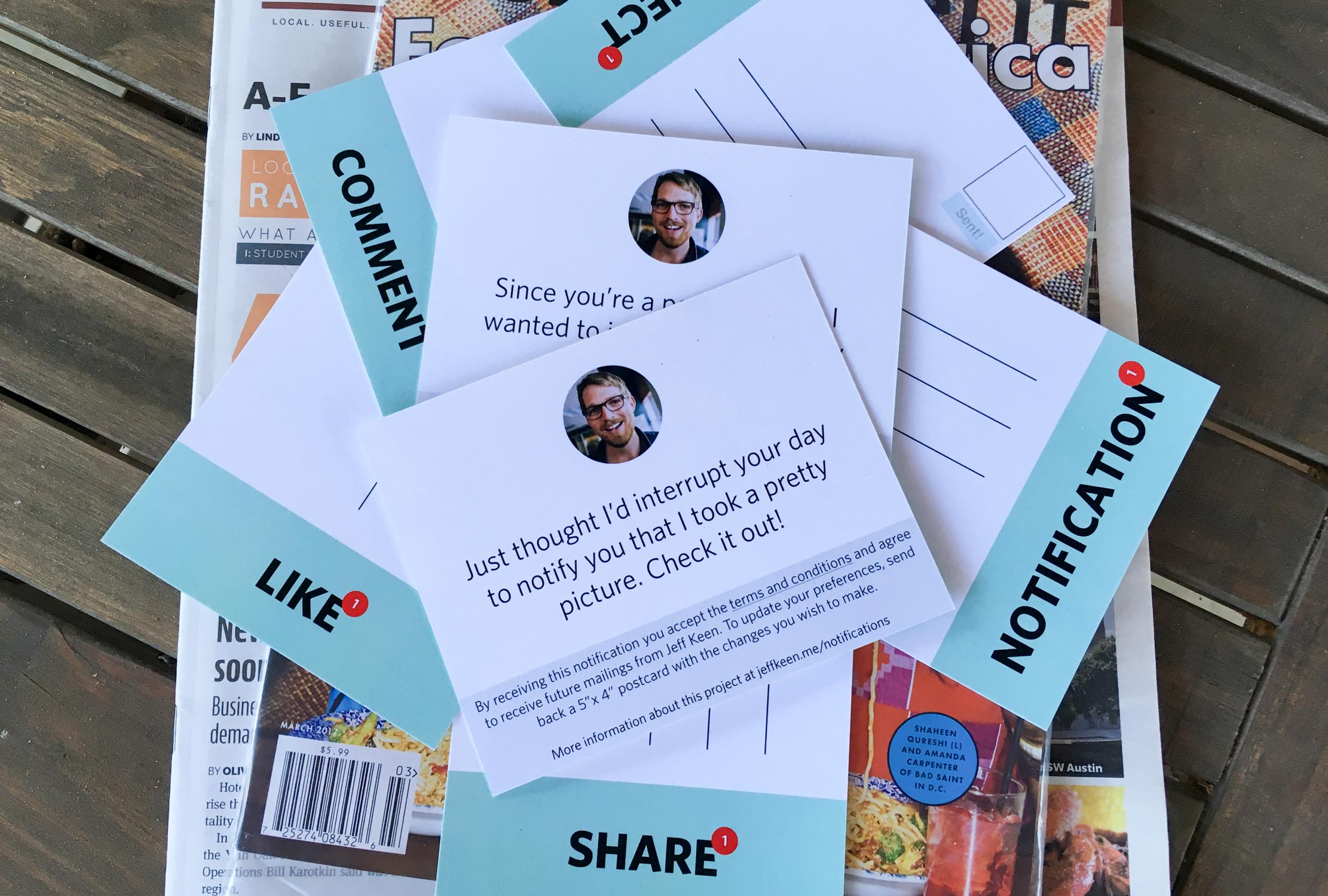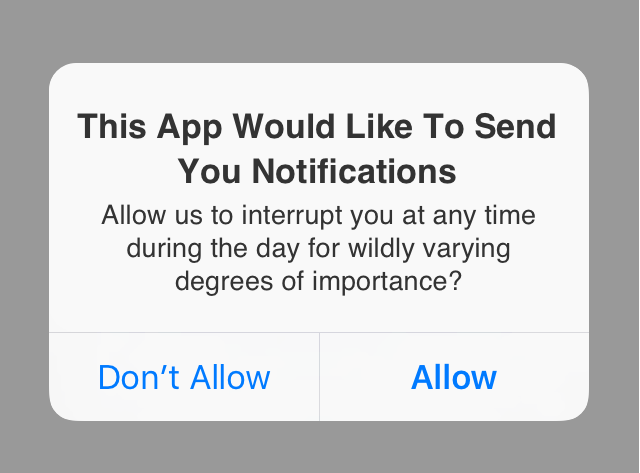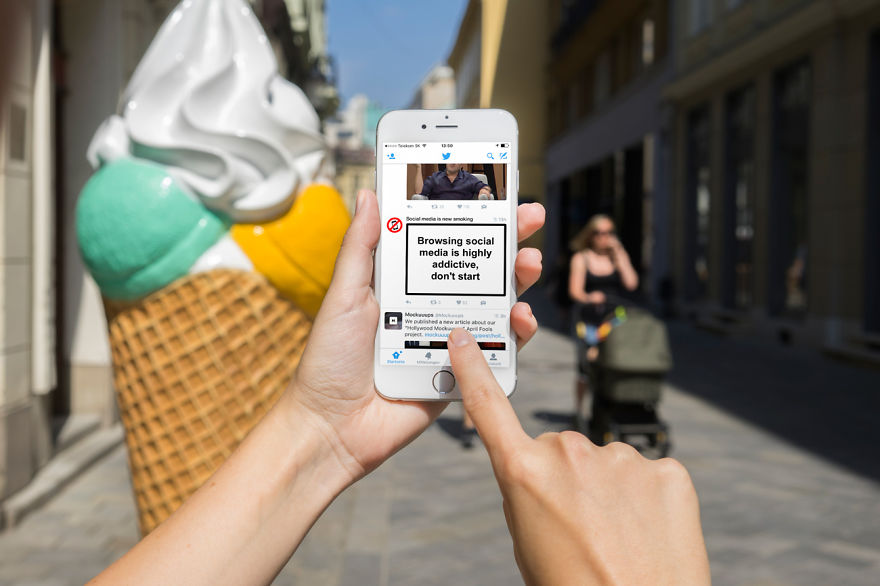
Postcards I made, maybe you got one?
Seems like we can’t go two minutes without our phones buzzing, trying to pull us away from whatever we were doing to instead look at a screen. This started out innocently: as a way to let you know that someone was personally communicating with you; a figurative tap on the shoulder through the magic of the internet.
But at some point this snowballed into us defaulting into allowing the entire world to tap us on the shoulder in the middle of family dinner.
Not only is that just annoying, but it’s partially responsible for actually changing our brains, which I will demonstrate to you using this simple test:
Next time you drive somewhere… don’t look at your phone until you get to your destination. Wait at those stop lights like you used to: existing in the physical space, and thinking the thoughts that came from your own brain.

I can already tell you that it’s not going to be easy. Having a magic device in my pocket that randomly pays out a sweet dopamine rush is the addictive slot machine my brain dreams of. And the more I think about it, the more I hate it.
I didn’t want to lose my attention span to digital junk food. I did not opt-in to this. But here I am, helpless but to compulsively pull my phone out of my pocket for no important reason at all.
What’s interesting to me is that we already know all this — that we just can’t stop looking at our screens — and we just accept it. We as a society also know that we can’t stop looking at our screens while driving and our best attempts to stop people from doing that have been about as effective as shaming an alcoholic into not drinking again.
Is this why we’re so excited for self-driving cars? So we can finally check our tweets safely on the way to work?
It seems like phone addiction (specifically, social media addiction through our phones) is what cigarette addiction was 50 years ago: Looks good, feels good, what’s the problem? A few people say it’s bad for your health, but those people are fringe weirdos. Everyone thinks they could cut back a little, but it’s so hard.

Recently after being delivered a heavy dose of life-perspective and deciding that “no, spending hours a day on my phone is not how I’d like to use my time”, I took some desperate measures. I neutered my notification settings, I deleted all apps with an infinite feed, and stopped charging my phone next to my bed.
Moving my phone charger six feet away to my dresser was the easiest and most effective, because that small distance is enough to keep me in bed reading a book, and not fall for the classic trap of “but I’ll just look up this one thing quickly” while my book rests unread in my lap.
Deleting those apps was harder than I imagined it would be, though. After a few weeks of picking up my phone only to remember that “oh, I deleted that”, it has confirmed my initial hypothesis: most of the stuff on our phones that we think we absolutely need and can’t live without… we don’t actually need.
“Funny, how the things you have the hardest time parting with are the things you need the least”
Personally, I am loving the little bit of regained space in my brain I unintentionally gave up. It made completing this art and societal commentary project possible, for one, and is finally making a dent in the stack of books next to my bed I’ve been meaning to read forever.
What will you do with your regained brain space?
Homework
Give these things a try in an attempt to reclaim your attention span:
- Charge your phone in a place you can’t reach from your bed.
- Take a look through your notification settings and start turning them all off. If you really feel like you’re missing out on something later, you can always turn them back on.
- The hardest part: delete those apps that have no brakes. It doesn’t have to be permanent—just try it for a few weeks. (Worst case, for those one-off-cases, use the web-version. But the always there, ready to notify you native app is a big no.)
Extra Credit / Further Exploring
- The Bored and Brilliant project, by WNYC’s Note To Self (formerly New Tech City).
- Deep Work, by Cal Newport
- The Best Interface Is No Interface, by Golden Krishna